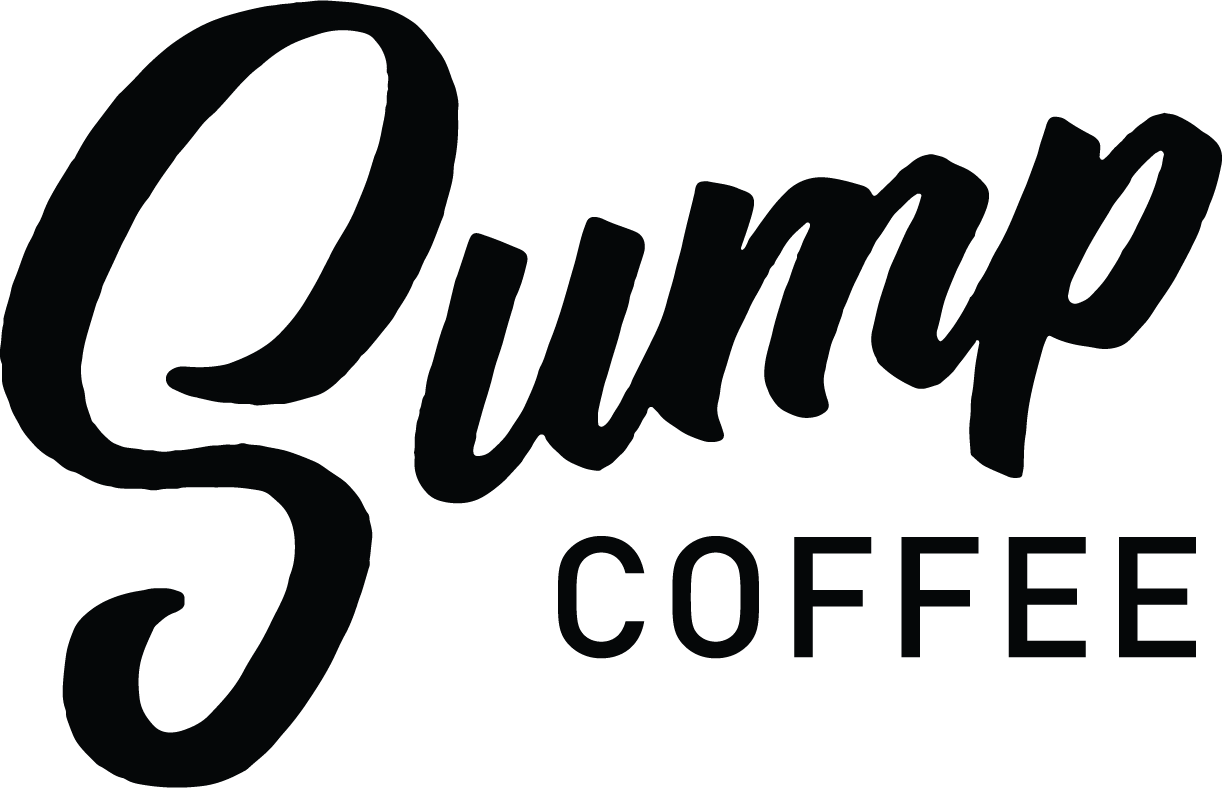
As 2019 closes out, a tiny voice is whispering to me, leaning in saying ‘write a year in review for Sump’. A voice that has hereto been absent these last 8 years. I assume this voice has found its moment from the weight of the closing decade. Also, everyone get your roaring 20’s New Year’s Eve engines revved.
First and foremost, it’s best to start all things in gratitude. A very big and lovely thank you and note of appreciation to everyone, all our guests, friends, family and coffee partners that came through our doors (virtual or real) to share a moment with us, our coffees and our team. My hope is that we can continue to earn a spot in your coffee hearts with our lineup of fresh crop coffees coming in 2020.
Next, I thought it would be fun to review, at least in list form, the coffees that crossed our roastery this year. Now would also be a good opportunity to plug our coffee subscription, of which most if not all of the below coffees were on offer in that program. It is a lot of work introducing a new coffee every two weeks into the subscription program and our menus, but it is our pleasure and honor to do so for you. As you roll through the list, imagine your favorite movie credits soundtrack.
Ethiopia, Guji, Uraga
Ethiopia Duromina Agaro, Keta Maduga Coop
Ethiopia, Duromina, Oromia
Ethiopia Bensa Kokosa (Natural)
Ethiopia, Nano Challa, Oromia
Ethiopia, Ditmu, Guji
Ethiopia, Aricha, Yirgacheffe (Natural)
Ethiopia, Misty Valley, Yirgacheffe (Natural)
Guatemala, Huehuetenango, Quejina
Guatemala, Huehuetenango, La Cumbre, Villatoro Bros.
Guatemala, Huehuetenango, Fredy Morales (Natural)
Guatemala, Huehuetenango,El Naranjo, David Roberto Mendez
Colombia, Tosoabi, Pasto
Colombia Huila, La Virgen, Guadalupe
Colombia, Duarte Bajo, La Florida
Colombia, Huila & Cauca lots, Decaf (sugar cane process)
Colombia, El Tambo, Women's Producers Lot, Cauca
Colombia, Andino AAA, Huila
Colombia, Gladis Camayo, Las Veraneras
Colombia, Java, Finca La Julia (Natural)
Colombia, Insula, Juan David Hernandez
Colombia, Asturias, Pink Bourbon
Honduras, Suyapa Sorto
Honduras, Nahum Vidal Sanchez, Los Ocotes
Honduras, Las Flores, Juan Contreras
Brazil, Minas Gerais (Natural)
El Salvador, Nazareno (Natural)
El Salvador, San Fernando, William Diaz (Honey)
El Salvador, Carlos Mauricio Lemus, Finca San Antonio, Alotepec (Natural)
El Salvador, San Fernando, Hondorita, Diaz Family (Honey)
Kenya, Gatuya, Kirinyaga AA
Kenya, Gaturiri, Nyeri AB
Kenya, Gachatha, Nyeri AB
Kenya, Gatomboya, Nyeri AA
Sumatra, Kerenci (honey)
Ecuador, Fausto Romo, Quito Pichincha
Sulawesi, Toraja, Peaberry
Costa Rica, Los Angeles, Las Lajas Perla Negra (Natural)
Costa Rica, El Jordan, Sabanilla de Alajuela, Gesha (Natural)
Zambia, Kateshi & Ngoli Estates, (Natural)
These were some amazing coffees. Obviously, there is no way we could have offered anything close to the quality each one of coffees demonstrated without the producers, their mill partners, and our importing partners. The average inbound price to us was $5.04 per lbs. The c-market ranged from $1.05 to $1.40 per pound this last year. The fair trade minimum price is $1.35 to $1.40 for arabica (lower for robusta), which means if the c-market is $1.05 per pound the fair trade minimum price would add 0.30 to 0.45 cents -thereby setting a floor or minimum price when the c-market fails to produce a price that keeps the producer in the black. For organic certification, add another 0.30 cents per pound. Here’s a link to fair trade pricing on a whole host of agricultural products.https://www.fairtrade.net/standard/minimum-price-info. I have always found a disproportionate burden placed on coffee spaces over other spaces concerning social justice issues. I only mention this, because there are many agricultural products and there is a P&L on all of them, producing pricing floors and minimums to keep them sustainable; although not as much is written on those products and practices, as say coffee (where my celery advocates at?).
My hope, and it is certainly naive, is that by buying quality coffee well above c-market and certification rates, a good portion of that money goes back to the producer; and the producer, wanting to stay out of the c-market, will be a good steward of the land so as to continue to produce coffee of distinction. My further hope is that the middle people, those responsible for finishing and moving the coffees from producer to roaster, also wanting to earn dimes per pound instead of pennies, enable and empower the producers they work with to stay in the specialty coffee market. But alas the chain is very long from grower to your cup and I will never know with certainty (outside of traveling and personally transacting for every lot we bring in, which is both beyond our financial and time abilities).
This year also saw some really outstanding and long standing team members move on to other careers. We also saw existing and new team members step up to bigger roles and responsibilities. Hakuna Matata. Circle of life. Some very special human beings. Thanks to both the old and new guard.
Here’s to a gentle end to 2019 and a bright and humane 2020. I hope we can make you something special in the new year.
